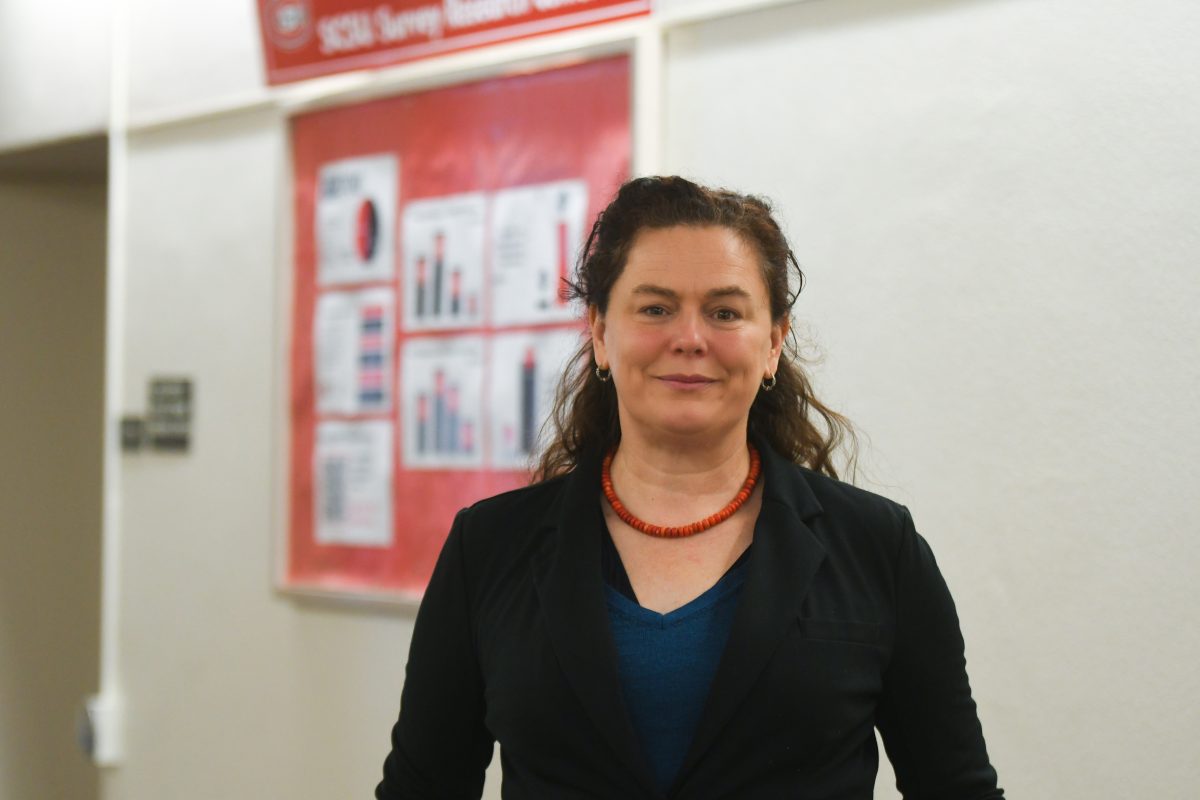
Dr. Ann Finan is meeting with farmers from across the nation this spring in focus groups interviewing them about how farm policy helps or hurts their use of sustainable practices.
She is working with colleagues at the University of Minnesota and the Michael Fields Agricultural Institute to conduct the interviews and compile the data.
In fall, she will work with her students and colleagues in the St. Cloud State University Survey Center to take what they are learning this spring and conduct a nationwide survey of farmers to look at the what the barriers are to farmers adopting perennial forage systems and how those barriers vary by social characteristics like gender, class, race and ethnicity.
Their work is part of a $10 million grant from the USDA National Institute of Food and Agriculture as part of a multi-state team of researchers looking to study diverse perennial forage systems and to promote their adoption across the United States. The project includes more than 50 researchers and stakeholders from 23 universities, two USDA-Agricultural Research Service Centers, and 12 farmer organizations, industry groups, non-governmental organizations and government organizations. The project is housed at the University of Wisconsin-Madison and headed by principal investigator Dr. Valentin Picasso, an agronomist specializing in sustainable forage systems.
Perennial forage systems incorporate longer-lived crops like grasses or legumes that are usually grown to feed livestock in the form of pasture or hay. Perennial forages support healthier food for livestock, reduce soil erosion, and can even result in healthier food products in the grocery store. The project will investigate both the biology and chemistry of perennial forage for the environment and the social benefits and barriers to using these systems, especially for racially and ethnically diverse farmers and women farmers.
Finan is a researcher with a background in sustainable agriculture and sociology. Her background and her position as the faculty co-director of the SCSU Survey Research Center made her and St. Cloud State a good match for the broader team.
“This grant gives our students an opportunity to see this applied social science research process firsthand,” Finan said. “We expect our faculty and students to be involved in not only the data collection process, but also in analyzing, presenting and publishing around this project for several years into the future.”
The five year grant started this fall and about $600,000 of the total grant will be used by St. Cloud State researchers as they study the social aspects of the agricultural systems to try and understand the barriers and opportunities farmers face in trying to support diverse perennial forage systems.
We’ll be working to identify ways in which women and farmers of color can be supported in adopting these more sustainable systems,” Finan said. “We’ll be looking at how these systems can help both local communities economically as well as farmers and producers. And we’ll be helping to support policy recommendations that come out of this research.”
The research team is beginning by recruiting 50 pairs of famers from across the United States and compare those who are using sustainable perennial foraging with those who aren’t. Other researchers on the team will be looking at the agricultural science behind the sustainability and greenhouse gas emissions from both types of farmers, while St. Cloud State researchers and the SCSU Survey Research Center conducts surveys and focus groups with diverse populations of farmers across the United States. They, along with other colleagues involved in the project, will then analyze the data to make policy recommendations for the U.S. Farm Bill and other state and federal policies related to agriculture and rural communities.
“This will be another opportunity for students to get involved,” Finan said. “And the insights we gain from this research will go on to inform content in classes exploring the intersection of society, science and technology, as well as our environmental sociology classes.”
